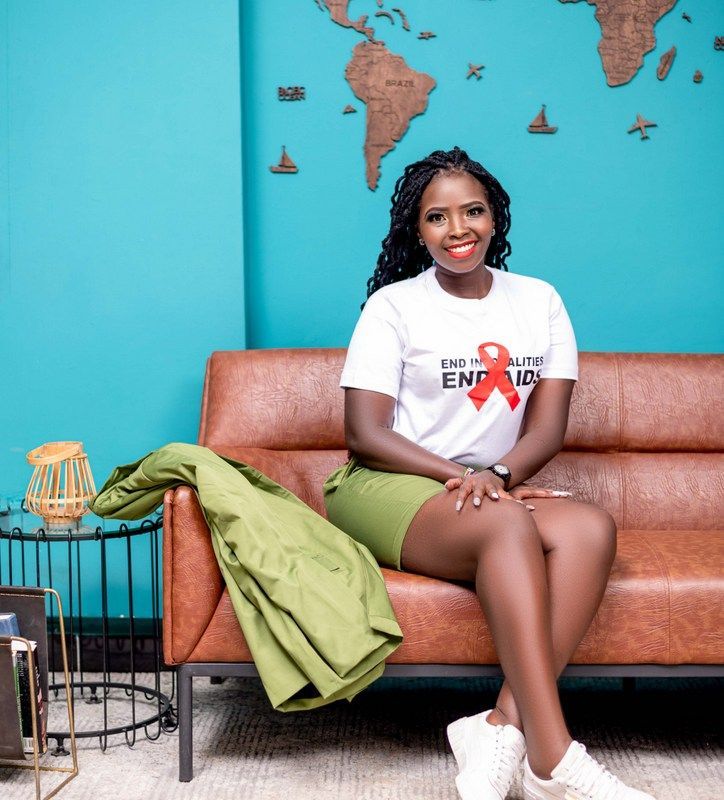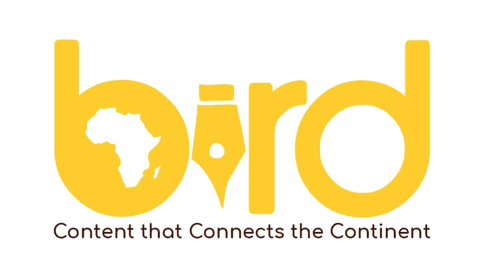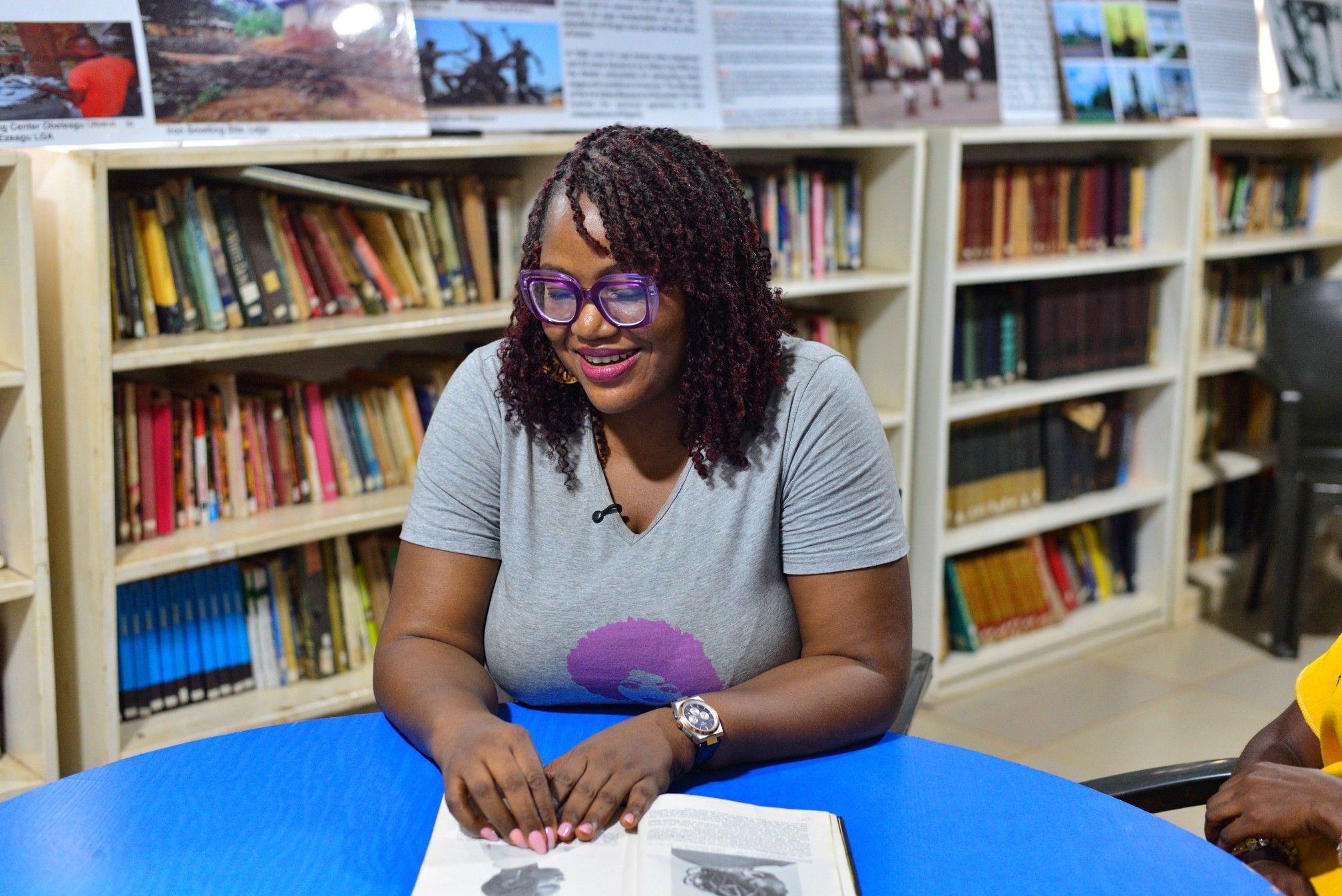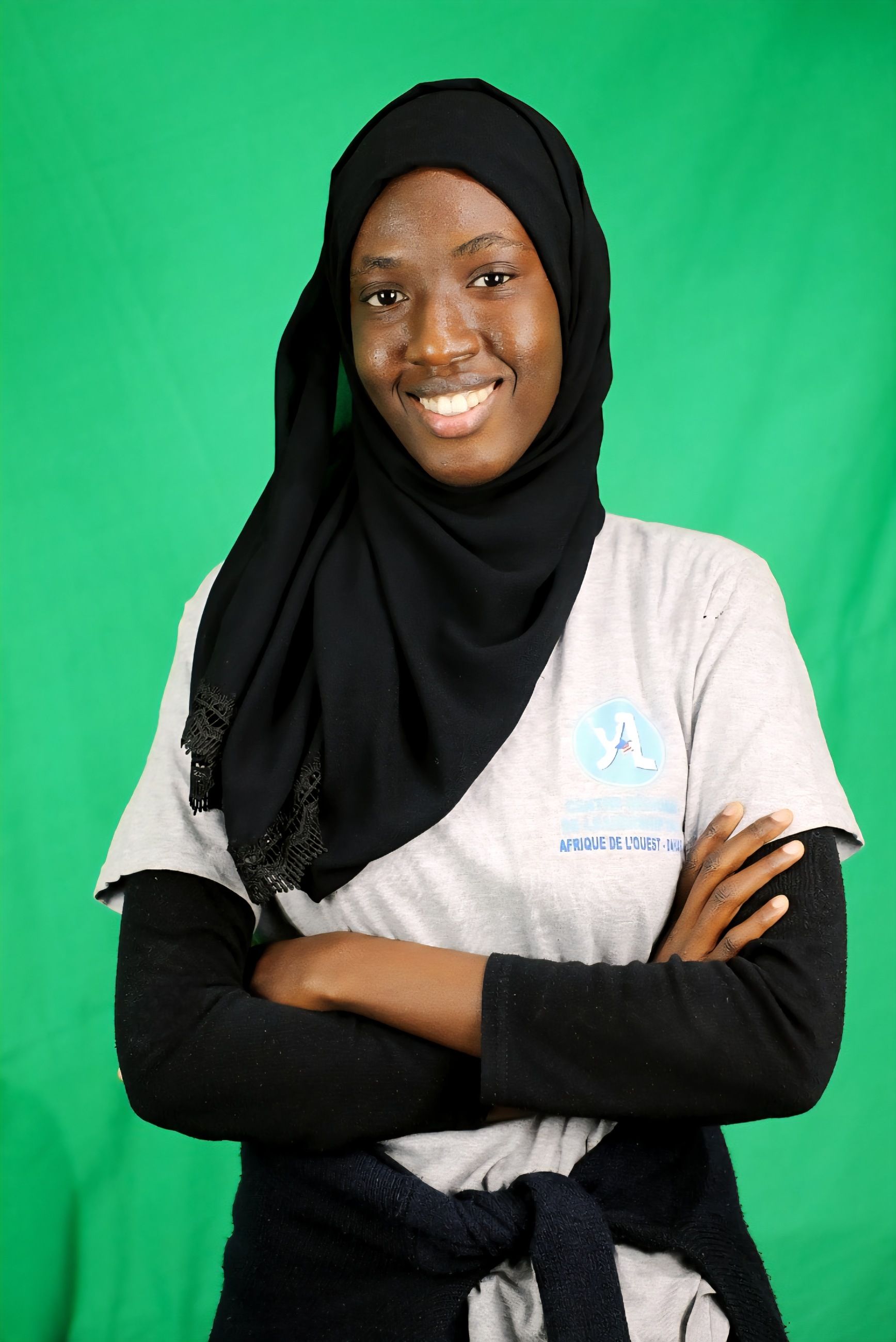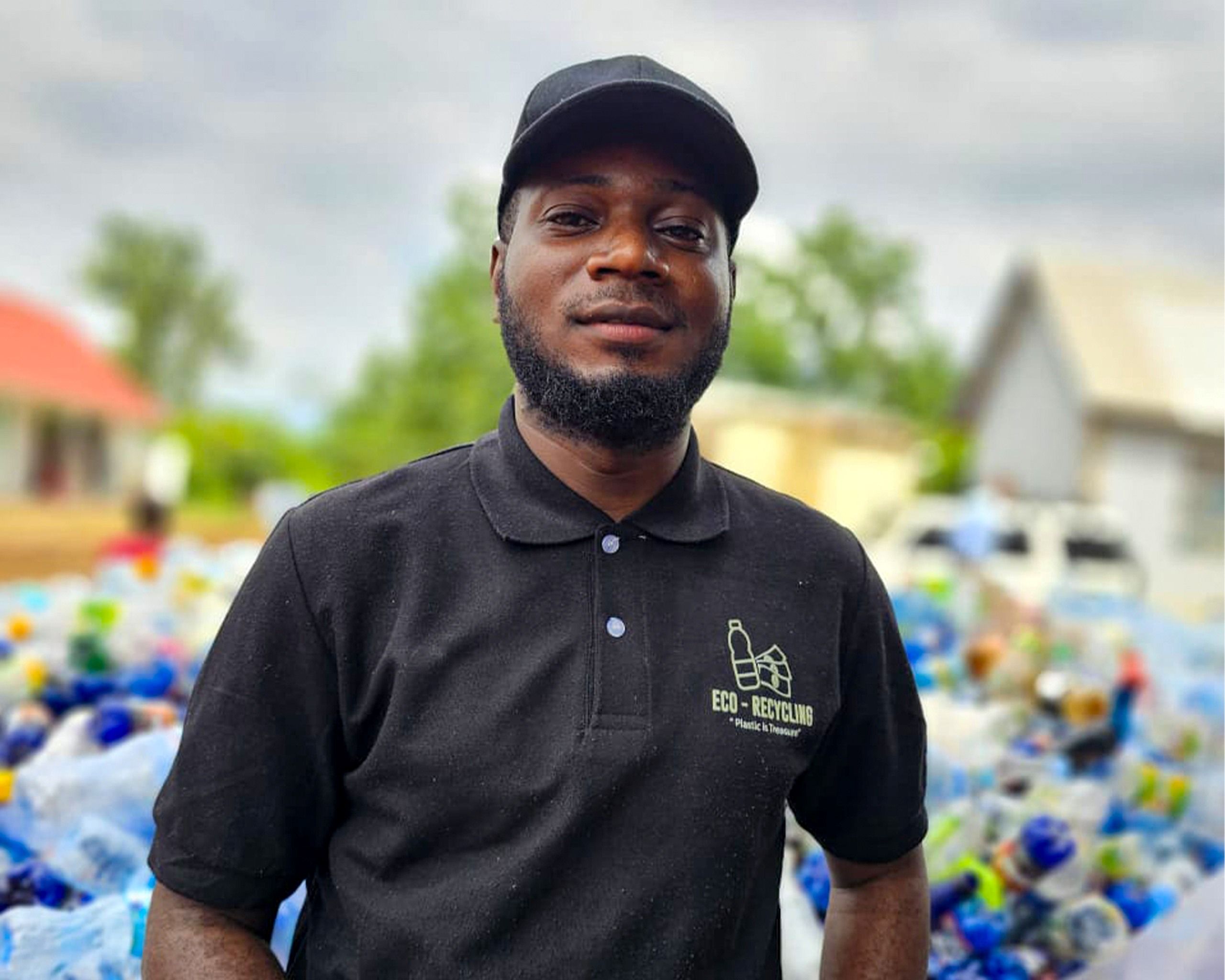Both born with HIV, Cleopatra Wanjiku and Brian Omondi have started initiatives that tackle HIV stigma while amplifying the voices of young people living with the disease.

By Atieno Odera
At only 13 years old, Cleopatra Wanjiku's worst fears were confirmed when a hospital nurse informed her that she had tested positive for HIV.
Before the diagnosis, her classmates had often insinuated that her mother, who died when she was eight, had succumbed to the virus. But Wanjiku paid no heed; after all, her grandmother continuously reassured her that her mother died from 'chest pains.'
"I couldn't believe it. I was 13 years old. A young adolescent. Having lost my mom at 8 and now being told that I am sick was something that I couldn't handle, and this simply proved to me that the world is truly untrustworthy. I wept as I imagined my family and friends crying over me while surrounding my corpse. We had learnt at school that HIV was a death sentence. I even contemplated suicide," she shared.
After the test results, she was immediately enrolled in the Comprehensive Care Clinic and started on antiretroviral therapy.
But navigating high school with an HIV diagnosis proved to be more challenging. Because of perceived stigma from other students, she missed taking her medication which triggered an opportunistic infection because of her weakened immune system.
While at Kiine Girls High School, she got infected with tuberculosis. Because of the significant weight loss and severe body weakness, she could not go for treatment. The school principal had to call her father.
"I could see the pain in my father's eyes when he came to take me to the hospital. I stayed home for three days after leaving the hospital before I resumed school. Being unable to keep up with my TB treatment because of stigmatisation from the other students triggered the reoccurrence of the disease. Eventually, treatment had to be administered as injections," shared the 27-year-old Wanjiku.
This experience motivated her to later pursue a course in Community Health and HIV management at Mount Kenya University, Nairobi. But here, she would face even greater setbacks.
"Campus life was hard. I felt like I had had enough of everything and I needed a break from the medication and this is exactly what I told the doctor. I wanted to feel free like any other person, lead a normal life, and have the freedom to do anything I wanted," she said.
Defaulting treatment for almost a year caused her health to deteriorate. She was admitted to the hospital, put in care, and started on therapy again. This time she was able to achieve an undetectable HIV status.
In 2021, Wanjiku started 'The Voice of a black Child' to raise awareness of HIV stigmatisation and increase sensitisation and peer education on HIV/AIDS. As part of her initiative, she teaches people about the Undetectable equals Untransmittable messaging.
"Undetectable status is where ARVs have reduced your HIV virus to such small quantities that it can no longer be detected by standard blood tests and hence cannot infect another person. If a person has achieved this sometimes a test can give a negative result since the virus is present only in the bone marrow. I see and hear a lot of negative ignorant remarks about living with HIV and that's why I am standing in the gap," she said.
Wanjiku has partnered with corporate brands like Tropical Heat and Indomie Kenya in her community sensitisation drives. These companies facilitate her with food supplies and other donations she distributes to community members.
"I met Wanjiku during a CSR event in 2020 at Hope of Rescue Centre. I was very touched by her initiative, she is a story of courage and calling out for more action in society, so we decided to partner with and empower their project so they can reach even more people. It is important for people to know the best way to live positively and beat the stigmatisation," said Lucy Nyambura, Indomie Kenya's managing director.
According to the latest Global AIDS update by the United Nations Programme on HIV/AIDS, about 38.4 million globally were living with HIV in 2021, with new infections at 1.5 million and 650,000 deaths due to AIDS-related causes. However, 28.7 million people were accessing antiretroviral therapy by the end of 2021.
Increased access to HIV treatment has been made possible by efforts like Wanjiku's, which sensitises those with the disease to seek treatment unashamedly.
Like Wanjiku, Brian Omondi, the founder of One Voice Network, is also amplifying the voices of young people living with HIV to create awareness and mentorship towards a stigma-free world.

"I was born with HIV in the slums of Bangladesh, Mombasa, which is also known for the high HIV prevalence. I've been living positively for 25 years. My mom, a community health volunteer, died in 2016, but lived a life of empowering the community about HIV infections. And when she died, I picked up the mantle and started my initiative in 2019," said Omondi.
As per the County AIDS and STIs Coordinator Mombasa County, Zainab Ahmed, 222,950 people were tested for HIV, and those who tested positive were started on treatment. She added that the county government has successfully rolled out tailored programs for people living with HIV.
"To support clients dealing with stigma, a peer supporter is allocated to walk with the individual until they are stable. For pregnant women, we have mentor mothers who also walk the journey with newly diagnosed pregnant women."
These mentors provide psychosocial support and education to newly diagnosed individuals.
Support groups, like Wanjiku's and Omondi's, also provide psychosocial support to persons living with HIV.
"Community health volunteers are key in providing support through home visits, education at the household level, referral and default tracing," said Zainab.
bird story agency

